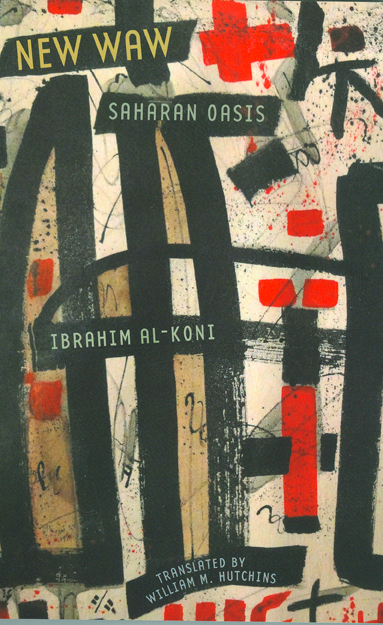By Frances Khirallah Noble
New Waw
By Ibrahim Al-Koni, translated by William M. Hutchins
Center for Middle Eastern Studies, The University of Texas at Austin, 2014
Ibrahim al-Koni has an ancient story to tell. It is the story of his tribe’s transition from nomadic to settled life, a transition depicted as an abandonment of the freedom and wandering required to invigorate the soul, a surrender to the seduction of earthly things. It is a story of the Sahara, a hymn to the desert, an acknowledgment that place is destiny. New Waw is the name given to a mythical Saharan oasis, an unattainable and imaginary place where ultimate longing is fulfilled, where there is eternal life and freedom from earthly problems.
In “New Waw,” occurrences in nature, such as the arrival of a bird, and the condition of objects, such as the shape of a dagger, have symbolic value and consequences for the tribal members. The story is laced with myth, metaphor, magic, prayer, poetry, secrets, prophecies, as well as diviners, warriors, and jinni.
As the tribe settles in what it hopes and believes is its “New Waw,” its oasis, it develops the trappings of “civilization” – a progression from fixed water sources to houses, agriculture, roads, commerce, and a plaza, as well as the need for walls, gold, protection and armed merchants – a progression accompanied by the corresponding demise of the tribe’s spirituality. “Civilization” marks the end of its civilization.
This article appeared in Al Jadid Magazine, Vol. 18, No. 67, 2013-2014.
Copyright © 2014 AL JADID MAGAZINE

